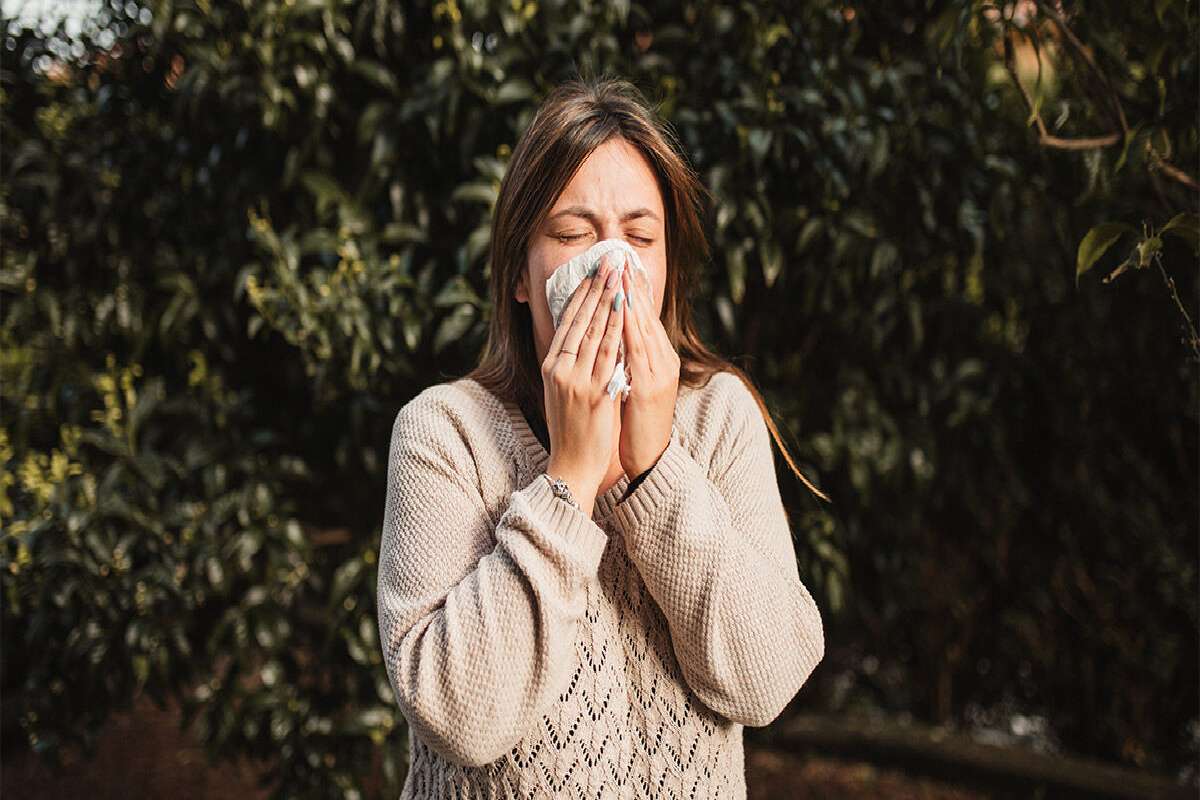Table of Contents
What is Allergic Rhinitis?
An allergic reaction causes itching, watery eyes, sneezing, and other similar symptoms. Allergic rhinitis occurs seasonally or throughout the year.
Besides, Diagnosis includes medical history, examination of the nasal passages, and also skin tests.
Antihistamine drugs reduce symptoms like sneezing, a runny nose, and red, watery, and itchy eyes. Allergic rhinitis affects nearly one in five people. So, Most are allergic to certain types of pollens that circulate in the air.
Depending on the period of circulation of the plant’s pollen, the “season” of allergies extends from March to October.
Practical Tips to Reduce Allergic Rhinitis
A few tips and tricks can also reduce contact with the pollen responsible for allergic symptoms.
- Firstly, wear glasses (sunglasses or prescription) outdoors.
- Secondly, In the car, invest in a pollen filter and close the windows.
- Keep doors and windows closed in homes and apartments. An air conditioner equipped with a filtration system can significantly improve the comfort of people allergic to pollen!
- You go for showering, wash your hair, and do the laundry as soon as you get home to prevent pollen from spreading inside homes.
- Rather than outside, dry clothes in a dryer
- Trees, weeds, and lawns release tiny grains of pollen into the environment every spring and summer. Some end in your nose and throat. It can lead to a type of allergy called allergic rhinitis.
Symptoms of Allergic Rhinitis
- Sneezing is often accompanied by a stuffy or runny nose.
- Cough and postnasal discharge
- Itchy eyes, nose, and throat
- and also, puffy eyes
Your health care provider can diagnose allergic rhinitis with a physical exam and your symptoms. Sometimes blood or skin tests are used. Further, certain medications and nasal sprays can relieve symptoms. You can also do nasal rinses, but be sure to use distilled or sterilized water with salt. Allergy shots can make you less sensitive to pollen and provide long-term relief.
Causes of Allergic Rhinitis

Histamine is released when your body comes into contact with an allergen, a naturally occurring chemical that defends your body against the allergen. And also, such chemical causes allergic rhinitis, and its symptoms include a runny nose, sneezing, and itchy eyes.
Besides tree pollen, other common allergens include:
- grass pollen
- mites
- animal dander (old skin)
- cat saliva
- mold
Treatments for Allergic Rhinitis
There are several ways you can treat allergic rhinitis. Besides, these include medications, home remedies, and possibly alternative medications.
Antihistamines– You can take antihistamines to treat allergies. Its action is to prevent your body from making histamine.
Some popular over-the-counter (OTC) antihistamines include:
- fexofenadine (Allegra)
- diphenhydramine (Benadryl)
- desloratadine (Clarinex)
- loratadine (Claritin)
- levocetirizine (Xyzal)
- cetirizine (Zyrtec)
Decongestants – You can use decongestants for a short time, usually no more than three days, to relieve nasal congestion and pressure in the nasal passages. Using them for longer can cause a relapse, which means that once you stop using them, your symptoms will get worse.
- The most popular over-the-counter decongestants include:
- oxymetazoline (Afrin nasal spray)
- pseudoephedrine (Sudafed)
- phenylephrine (Sudafed PE)
- cetirizine with pseudoephedrine (Zyrtec-D)
Nasal drops and sprays – Eye drops and nasal sprays help relieve itching and other allergy-related symptoms for a short time. However, depending on the product, you need to avoid prolonged use.
Immunotherapy – Your doctor may recommend immunotherapy or allergy shots if you have severe allergies. Use a treatment plan along with medication to control your symptoms. These injections decrease your immune response to particular allergens over time. They require a long-term commitment to a treatment plan.
Sublingual immunotherapy (ITSL) – involves placing a tablet containing various allergens under the tongue. It works the same as allergy shots but without an injection. It effectively treats rhinitis and asthma allergies caused by grass, tree pollen, cat dander, mites, and ragweed.
Home remedies – Home remedies will depend on the allergens that affect you. And also, add a filter designed for allergies.

